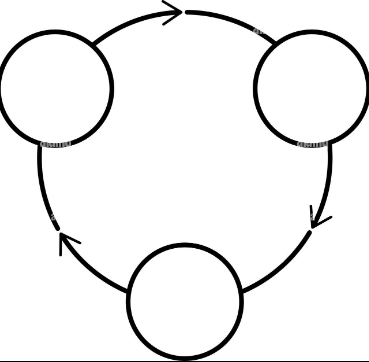Importance of Illustrations in Mains Answer Writing | UPSC Mains Answer Writing: Practice PDF Download
Illustrations are effective tools in making your answers appealing.
They break the monotony of text, catch the examiners’ attention and make their job easier and more enjoyable. Apart from this, illustrations are important for the following reasons:
- When you draw and label well, you can convey extra information apart from your write-up.
- They simplify complex information and make it easier to comprehend.
- When you are severely running out of time (especially toward the end of the paper) diagrams and flowcharts come in handy in helping you finish the paper in time.
- They consume less time and space but are incredibly effective. The ratio of output to effort is really high.
TYPES OF ILLUSTRATIONS IN GS
INDIA MAPS
A well labelled India map pretty much goes with any question. If it’s a question related to river linking project, illustrate and show the major proposed projects; if the question asks about Buddhist art, label important sites on the map; if you are talking about border security, show the examiner the major challenges we have from our borders. Get into the habit of depicting information through maps, and they will become valuable in writing better answers.
WORLD MAPS
These are helpful in Geography and International Relations sections of GS1 and GS 2 respectively. Through world maps, you can depict geographical features like the Pacific Ring of Fire, geographical phenomena like the pressure belts of the earth, ITCZ etc. Under International Relations, when you are writing about the latest happenings, try to show them on the map. For example, you can depict Chabahar port in Iran on a map to explain its strategic significance to India. So as you prepare for these topics, make a mental note of where all you can draw maps to present your answer better.
ART AND CULTURE DIAGRAMS
In this section, you can depict important cultural sites on the map and also draw a rough diagram of that particular art itself. For instance, subjects such as Warli art, temple architecture, stupas can be shown through a diagram. There is no need to be precise here. Just try to get the basics right and that will suffice.
DIAGRAMS TO EXPLAIN CONCEPTS
You can also make use of diagrams to simplify concepts. You will find these diagrams in newspapers and on the internet. For example, in a question pertaining to WASH programme, I drew a diagram of a twin pit toilet to show how it can be a low cost solution. Similarly, topics like
money laundering, watershed management, Goods and Services Tax can all be depicted through simple diagrams to make comprehension easier. It helps immensely to prepare them during your preparation itself.
The following examples explain these three better.
Linear Chart

Hub and Spoke Diagram

Circular Diagram

LAST WORD
Diagrams only add value to your answer. They are not the answer in themselves. Always ask yourself: what valuable information is this illustration conveying? Once you are convinced, go ahead and draw.
During preparation, take out some time for practising diagrams. This helps you to draw neatly and quickly in the exam hall.
Always be mindful of your time limit. One should be able to draw and label the diagram in under a minute. Experiment in your mock tests so that drawing them in the actual exam becomes second nature to you.
|
8 videos|347 docs
|
FAQs on Importance of Illustrations in Mains Answer Writing - UPSC Mains Answer Writing: Practice
| 1. What is the significance of illustrations in UPSC mains answer writing? |  |
| 2. How can illustrations be used effectively in UPSC mains answer writing? |  |
| 3. Can illustrations be used in all types of questions in UPSC mains? |  |
| 4. Are there any limitations to using illustrations in UPSC mains answer writing? |  |
| 5. How can one practice using illustrations in UPSC mains answer writing? |  |

|
Explore Courses for UPSC exam
|

|

















